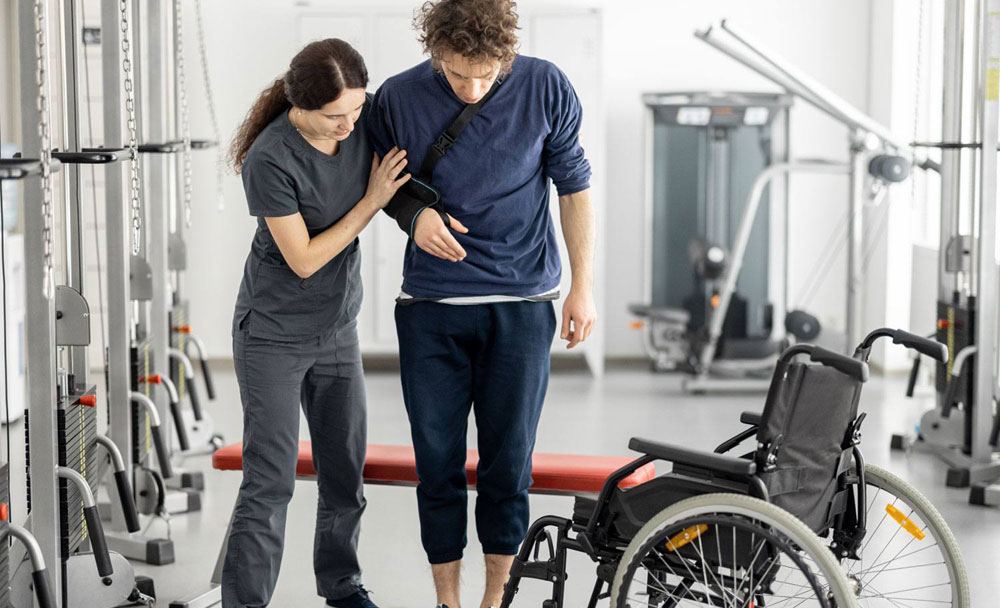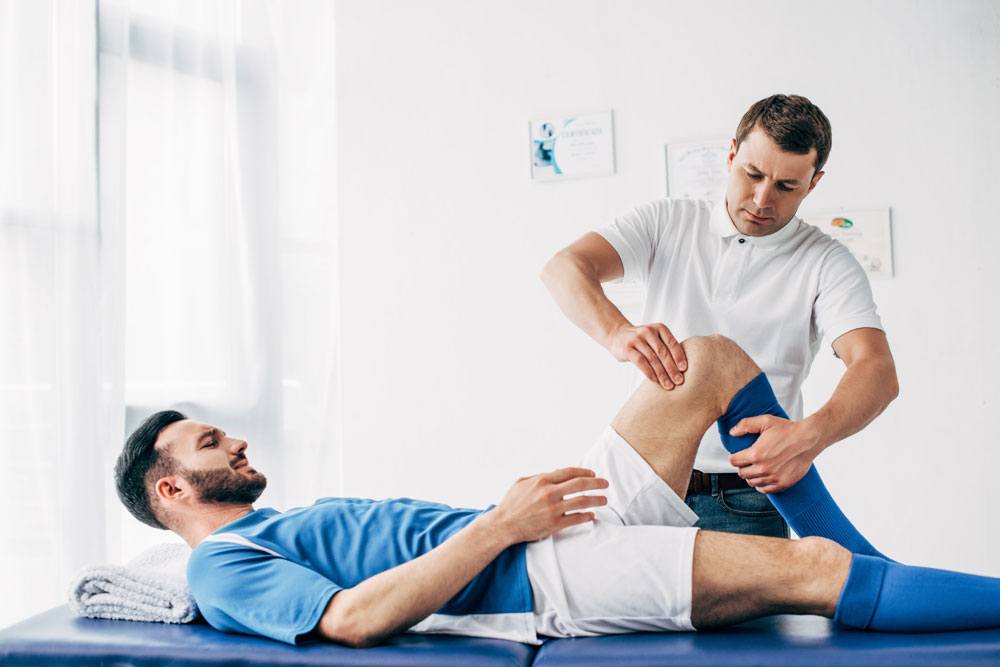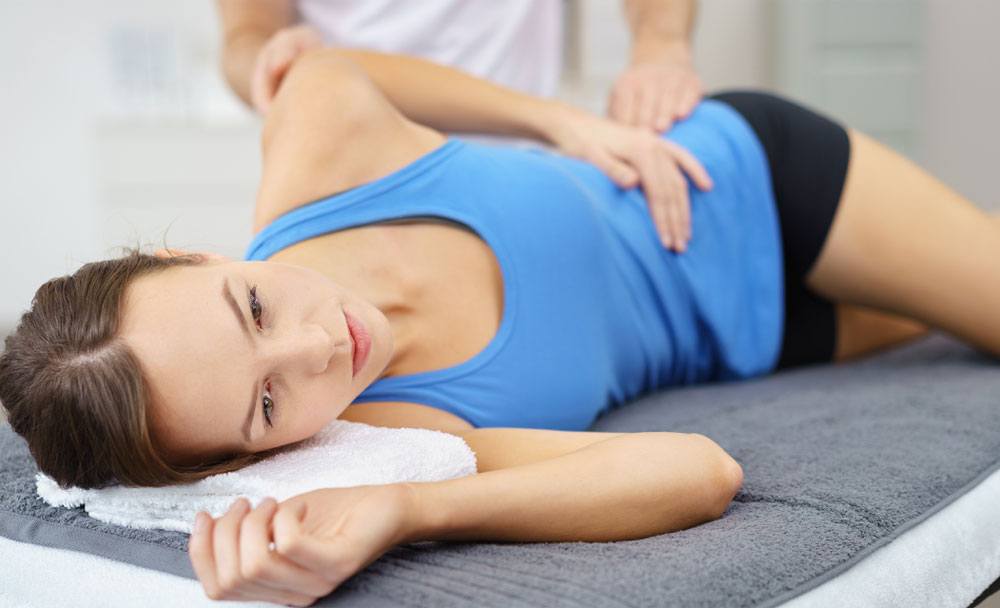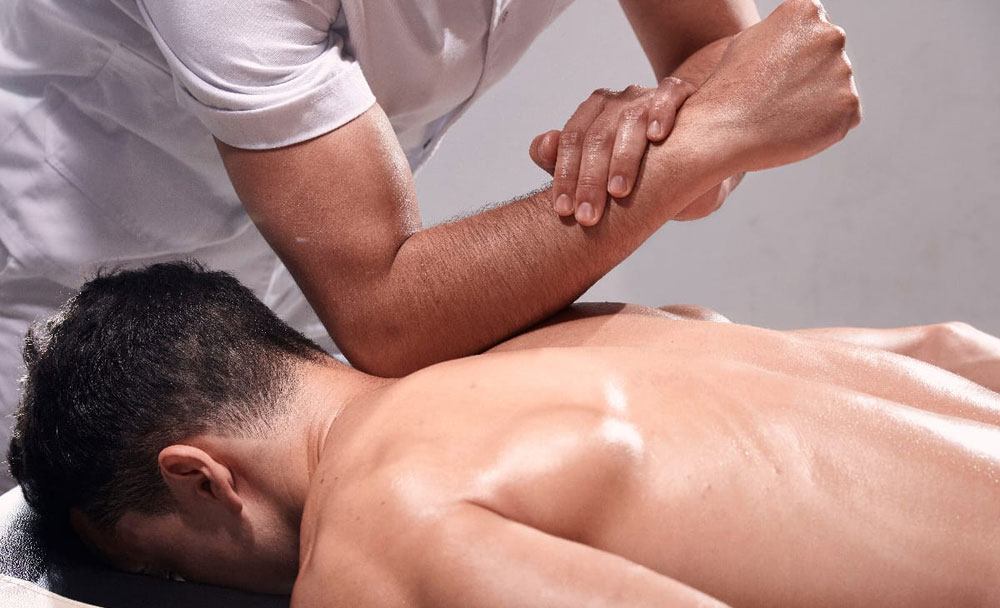Conditions


Why the Physiotherapy Centre
Our Results Focused Method combined with our multidisciplinary team is what makes our Award Winning business model unique in the healthcare market. Unlike the majority of private clinics our staff are employed, rather than contracted, which means that you will be working with the members of the team most experienced and capable of getting you the results you deserve.

The following list of conditions is an
example of the types of problems we deal with daily:
- Back and Neck Pain
- Sciatica
- Frozen Shoulder
- Rotator Cuff Problems
- Cartilage and Joint Problems
- Ligament Injuries
- Osteoarthritis
- Fibromyalgia
- Rheumatoid Arthritis
- EDS
- Chronic Spinal Pain
- After Joint Replacements
- Orthopaedic Surgery
- Arthroscopies
- Tendon Repairs
- Fractures
- Pain
- Swelling of certain joints
- Stiffness which occurs especially in the mornings
- Redness over the joints
- Heat within the joints
- Unable to carry out your normal activities of daily living
- Tiredness
- Anxiety and depression
- Anemia (reduced red blood cells)
- Weight loss
- Joint instability
- Deformities
- Rheumatoid nodules (lumps) over the joints
- pregnancy-related musculoskeletal problems, such as back pain, pelvic pain, sciatica or carpal tunnel syndrome
- bladder dysfunction
- bowel dysfunction
- pelvic floor dysfunction
- incontinence
- pelvic pain
- Plantar Fasciitis
- Achilles
- Tennis/Golfers Rlbow
- Gluteal Tendons
- Patellar Tendons
- Amputees
- Traumatic Head Injury
- RTA’s
Specialists in working within sports and have great ability to enhance performance and support and treat athletes, both professional and recreational.
- Dizziness or blurry vision with head movements
- Neck tightness, stiffness and/or pain
- Imbalance or the need to hold onto objects when walking
- Headaches
- Frequent falls
- Generalized “dizziness, wooziness and foggy head” feelings
- Vertigo/spinning
- Erectile Dysfunction
- Peyronie’s Disease
- Chronic Pelvic Pain Syndrome
- Traumatic Brain Injury
- Stroke
- Multiple Sclerosis
- Parkinson’s Disease
- COPD
- Asthma
- Breathing Dysfunctions
You Ask, We Answer

In regards to surfers ear – as the ear canal is narrow, you are more likely to get up buildup of earwax that doesn’t clear itself naturally, causing reduced hearing (feeling of being under water muffled), feeling of ‘fullness or pressure’ or trapped water in the canal.
If water is trapped behind the wax, the likelihood of ear infections (swimmers ear) is increased significantly. It is advisable, that any buildup of wax is removed to prevent this from happening therefore regular check-ups and earwax removal is advisable. We are then also able to give you the recommended the best advise to keep this at bay!
In regards to swimmers ear – this will need to be addressed by a medical practitioner especially if you have any leakage or pain, however once the initial infection has been treated; you can be left with debris and dead skin cells that need to be removed to prevent future issues in regards to infection and blocked ears.
Swimmers ear normally occurs with people whose ears are exposed to water regularly through activities like swimming (hence the name). This regular exposure can cause bacteria to manifest in the ear canal causing infection of the ear canal.
This maybe painful, itchy and have a sensation of fulness or pressure and in some cases may have a leakage or discharge from
the ear. Normally antibiotic drops are used to treat this.
So it not the same but it may be possible to have both. If you are in any pain – it is best to seek medical advice.
Due to prolonged exposure to the elements, surfers ear is best described as bony growths (exotosis) of the ear canal, due to the ear trying to naturally protect the ear from continual exposure to water and wind.
In most cases it causes a slight narrowing of the ear canal that does not need medical intervention but can cause some minor issues such as increased likelihood of ear infections (swimmers ear), minor reduction in hearing and the likelihood of a build-up of earwax (cerumen) due to the increasingly small space.
In severe cases the growths can be significant enough that they may be removed surgically.
Book your appointment at The Physiotherapy Centre couldn’t be easier! Honestly, we have made is as convenient as we can, allowing bookings to be made either by coming into the centre, calling us, emailing or online.
Online you can book your initial appointments and most follow up appointments. We do have some appointments that cannot be booked online as we need to check that what you are enquiring about is the most appropriate for you.
Booking your appointment can be done with any of these methods below …
Book Online: ONLINE BOOKING PAGE
Email: [email protected]
Call: 02392 215 050
Pop In: 96 LONDON ROAD, WIDLEY, PO7 5AB
If you can think of any other methods that would help when booking an appointment, please do let me know. We haven’t tried carrier pigeon yet, but if that’s what you want then we can look into it.
Just one little caveat, if you are booking an appointment that will be funded by a third party you cannot book online. Sorry!
Many thanks, Patrick
Yes, we use acupuncture where it would be clinically appropriate and when a client is willing to have acupuncture used.
Acupuncture is great for pain relief on many conditions, including muscles, tendons, headaches and has also been proven to be effective on our women’s health clients.
Our acupuncture specialist, Angela, can talk you through your pain relief options and if she feels you will benefit from the treatment it can be added as part of your treatment plan.
Acupuncture costs £74 per session, and is most effective when used over several weeks. We are able to offer discounts when a package of sessions is required.
For more information on the effectiveness of acupuncture please visit our dedicated ACUPUNCTURE PAGE on the website.
Yes, we are able to use Shockwave Therapy for treatments.
Unlike other clinics, we are able to offer two versions of Shockwave – Radial and Focused. Most clinics are only able to offer Radial Shockwave, however there are several conditions where this is not as effective as Focused Shockwave. We are also to combine the two versions so the treatment can be even more effective for certain conditons.
Shockwave therapy is a great way to accelerate the healing process on injured tendons, ligaments and soft tissues. It is particularly effective on plantar fasciitis amongst other ailments, including Male Pelvic Health conditions.
To find out more about the differences in what we can offer with Shockwave compared to other clinics visit our dedicated SHOCKWAVE THERAPY PAGE on the website.
An assessment is approximately 45 mins to an hour long, this will be dependant on how the initial part of the assessment goes and how complex your condition.
This is gives the practitioner the opportunity to spend time getting to know you and your needs and wants, work through your medical history and where clinically appropriate perform some initial treatment on you.
In the assessment your practitioner will discuss with you any future treatments plans and options with you.
Our physiotherapy team have all been trained to the highest standard and they all have specialities in certain areas of physiotherapy. For example, Neuro Physiotherapy, Orthopaedic Physiotherapy and Paediatric Physiotherapy. Alongside this, we have specialists in Women’s Health and men’s health. We also have Hydrotherapy and Shockwave specialist practitioners.
Some of which cannot be found anywhere else on the south coast.
Hydrotherapy can help a range of conditions, for example following surgery or fracture (once your wounds are healed) or with injuries or presentations that make it difficult to move well on dry land due to pain, weakness or restricted movement. These could include neurological conditions (such as stroke or brain injury) or injuries including spinal and upper and lower limb injuries.
Pro’s
- The buoyancy in the water helps to reduce stress on joints and soft tissue while exercising, making it easier for those in pain to move better. This means that people can often exercise for longer in the water than they can on dry land.
- Water also creates resistance to movement, meaning that it can help with getting stronger without the need for weights or resistance bands. Combining the buoyancy with the resistance that the water provides can allow for more comfortable exercise than on dry land.
- The water provides hydrostatic pressure, which can help to reduce inflammation and also helps in improving joint and muscle position sense, which is often disturbed after an injury or surgery
- Warmth- the warmth in the water helps to reduce pain levels, relax muscles and increase blood flow to injured tissues, which can promote healing.
Con’s
- Some people with more sensitive skin will not tolerate the chemicals in the water as well as others. The hydrotherapy pool at TPC makes use of a UV light system, which reduces the amount of chemicals needed to maintain the water.
- Risk of drowning
- Some people can feel very fatigued after being in the water
If you have any of the following conditions
- Unstable cardiac condition- especially left ventricular failure
- Recent medical instability after acute episode without medical clearance (MI, CVA, DVT, PE, Status Asthmaticus)
- Unstable angina
- Renal compromise
- Uncontrolled blood pressure (high or low)
- Seizures / poorly controlled epilepsy
- Loss of consciousness / blackouts
- Uncontrolled diabetes
- Open wounds
- Infectious conditions eg MRSA
- Systemic illness with raised temperature
- Chlorine allergy
- Fear of water
Initially you would need a physiotherapist with you, to make sure you are able to use the pool and pool area safely and also to ensure you are doing appropriate exercises and can perform them effectively. Once the physiotherapist is happy with these, you may be able to use the pool independently.
No, hydrotherapy rarely involves swimming. It’s more doing exercises and specific techniques in the pool to work on strength, joint mobilisation, pain relief, relaxation, proprioception and balance working with the properties of the warm water to adjust the level of difficulty of the exercises to suit you and your condition.
The Physiotherapists at The Physiotherapy Centre are specialists at using hydrotherapy for helping solve a wide range of conditions. All the practitioners that use the pool have completed post-graduate training in hydrotherapy, and have been incredibly successful with their clients.
Hydrotherapy can be very helpful following knee replacement. It can help with your pain levels, range of motion, strengthening and function. The heat in the water will help to decrease pain and increase mobility (as tissue is more flexible when it’s warm), as well as increasing blood flow to the tissues, which helps to promote healing. The water will support some of your body weight, making it easier to move than it is on dry land.
There are certain medical conditions that would make it unsafe for you to use the pool such as unstable conditions (for example following recent stroke, heart attack, blood clots or severe asthma not responding to medication) or uncontrolled conditions like cardiac failure, angina, epilepsy, diabetes or blood pressure. You would also not be able to use the pool with a recent illness with a raised temperature (your temperature must have returned to normal for at least 24 hours) or following recent diarrhoea or vomiting (48 hours clearance). An allergy/insensitivity to chlorine is another reason not to use the pool.
The assessment is to make sure it is safe for you to use the pool (medically and physically), but also so that your clinician has a good understanding of your individual needs and presentation. This means that they can create a program of exercises specific to you, to ensure you get the best possible outcomes.
Osgood Schlatter’s Disease is a term used to describe pain in an area of growth just below the knee on the shin bone. It happens in active, young people who are going through a growth spurt. The large quadriceps muscle on the front of the thigh pulls on the kneecap (patella) and the patellar tendon, to straighten the knee. The patellar tendon attaches to the front of the shin bone (tibial tuberosity). It is thought that repeated stress and strain in the area of this attachment can cause inflammation and pain. As this heals a hard bony bump may develop.
A period of rest and modifying activity initially is recommended to allow the symptoms to settle.
Some things that may help are:
- The use of an ice pack when sore or just after activity
- Painkillers (as advised by your doctor)
- Reducing the amount of activity you do
- Stretches to loosen up your muscles so that they don’t pull so tightly on your bones (only do these when you are not in pain)
- Strengthening the knee
Osgood Schlatters generally resolves when young people stop growing.
Yes, your physiotherapist will advise you on appropriate forms of activity and guide you through a graded re-loading program as well as giving you an individualised home exercise plan.

Our Philosophy
Our philosophy has grown from the experience of successfully working with thousands of clients and developing a trusted unique method focussed on creating permanent transformations in people’s health.
The De Vos Method, a unique 3 step Results Focussed System (RFS), was initially specifically designed to help women with long term hip pain and has been successful to resolve pain in thousands of clients creating results well beyond what they believed possible.
What Our Clients Say…
Trustindex verifies that the original source of the review is Google. I injured my back doing martial arts and Cameron managed to squeeze me in very quickly. He assessed what the problem was and created a package of massages for me which really helped - I was pain free shortly after the first session. Cameron also diagnosed some weakness in my shoulders and gave me exercises to help my shoulders and back. Cameron is friendly, reassuring and knowledgeable, and the fees are very reasonable. I can’t recommend Cameron and the Physiotherapy Centre enough.Trustindex verifies that the original source of the review is Google. I wholeheartedly recommend the Strengthening and Conditioning classes at the Physiotherapy Centre in Widley! Run by the amazing Cam, these small group sessions are expertly tailored to suit each individual's abilities. Cam’s keen eye for personal needs ensures that every client gets the most out of the program. Not only are the classes incredibly effective, but they’re also fun to participate in.Trustindex verifies that the original source of the review is Google. Absolutely great, kind caring helpful and very good at diagnosing and treating,. I have used them twice now, both times very painful problems and helped fix me. Would recommend them to anyone with a problem.Trustindex verifies that the original source of the review is Google. I would recommend The Physiotherapy centre to anyone who is looking for attending somewhere where they feel valued, listened to and where the staff are absolutely top notch. I have never had much luck on the NHS but after finding the centre and having met Jeanette and then continuing to multiple courses of hydrotherapy, I will never look back. The help and guidance I have received has helped me so very much. All of the team I have met are so welcoming, friendly and helpful! Thank you Everyone!!! ShelleyTrustindex verifies that the original source of the review is Google. Many thanks to Cat for the help and kindness she showed me. She was very thorough and gave me lots of good advice plus exercises which helped enormously. Would highly recommend The Physiotherapy Centre.Trustindex verifies that the original source of the review is Google. Great team always helped with my pain. when I’ve had a bad a back & knee problem . The treatment I’ve received is top notch. Thank you ValTrustindex verifies that the original source of the review is Google. My husband and I have attended the Physiotherapy Centre for over 15 years with various sports injuries and have always received excellent care. Yves has extensive knowledge and experience . As a doctor I am aware of the potential for incorrect or missed diagnosis but I trust Yves implicitly . His assessments are thorough, he explains the problem and gives a comprehensive treatment plan . It is hard work but the results are worth it . He restores our activity . Thank you.Trustindex verifies that the original source of the review is Google. I have been attending the Physiocentre for 20+ years which has kept me playing hockey into my 70’s. I have recently had a bicompartmental knee replacement and returned to playing in 4 months. Brilliant practice.Trustindex verifies that the original source of the review is Google. I can’t recommend the Physiotherapy centre in Purbrook highly enough, from a warm and helpful welcome from reception staff to Catherine who helped me a great deal with my back problem. The exercises has given me more flexibility, thank you and will use you again.Trustindex verifies that the original source of the review is Google. Fantastic treatment and service. I have recommended to many friends and family over the years.
You Ask, We Answer
What is the cost of physiotherapy?
Find out about the costs of the initial assessment and follow up sessions of MSK physiotherapy.
How long is a session of physiotherapy?
A top question is about how long the sessions are, here we explain about the length of MSK initial and follow up sessions.
Do I need a referral to be treated by you?
To get your treatment at The Physiotherapy Centre, do you need to get a referral from your GP or Consultant?
